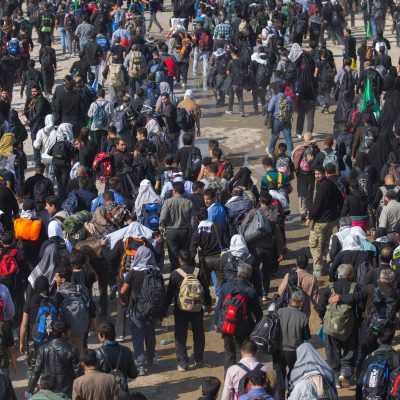A jobseeker’s visa for third-country nationals

This Policy paper of Yves Pascouau, associate senior research fellow at the Jacques Delors Institute and director at the EPC, proposes to create a jobseeker’s visa, based on the freedom of movement of European citizens and on the legal and technological “arsenal” implemented for the EU’s external border controls.
The European Union (EU) is facing an unprecedented migration and refugee crisis against a very difficult political backdrop. The adoption of emergency measures and the adaptation of migration and integration policies in line with the number and profile of the new arrivals are set to occupy the political agenda for some time to come, and call for alternative solutions to managing the migration phenomenon.
Should the current methods of managing the crisis prevail, they should not indefinitely postpone considerations regarding the content of a European immigration policy and more specifically on the issue of labour immigration. In this regard, the ambitions of the Juncker Commission are modest and aim to improve existing measures rather than propose innovative solutions to meet future challenges.
Yves Pascouau proposes to further the debate on the basis of a three-fold observation. Labour immigration is the “poor relation” of the EU’s migration policy. It does not feature prominently in the EU’s bilateral relations with its closest neighbours. Lastly, control-based policies (borders and visas) developed in recent years are actually contributing to the illegal immigration and trafficking networks they claim to be fighting against.
He identifies a course of action inspired firstly by the freedom of movement of European citizens, which in half a century has not resulted in a “wave of migrations” between Member States, and secondly by the legal and technological “arsenal” implemented for the EU’s external border controls.
Based on this contradiction in terms between freedom and control, he proposes to create a jobseeker’s visa. While the idea is not new, the proposal is grounded in the synergies possible between existing experiences and systems that make it “conceivable” in a sensitive political landscape in which tackling the migration issue has become “toxic”.
In practice, nationals from bordering third countries (such as Morocco, Tunisia or Ukraine) could, under specific conditions, obtain a visa to look for employment in the EU. A monitoring mechanism would be set up using databases developed in relation to the migration policy. Securing a job would be a condition for residence in the EU. If employment is not found, the third-country national would be required to return to the country of origin prior to the visa’s expiry and this would not prevent an application for a new visa. In the event of non-compliance with the rules, and should nationals fail to return to their countries of origin before their visas expire, a penalty system would be organised, based on the rejection of any future visa application and an EU entry ban.
This jobseeker’s visa would give greater consistence to the concept of mobility, which is currently limited to the short-stay Schengen visa, and would only pose a minimum migration “risk”, in view of the technological monitoring systems that currently allow a more effective oversight of migrant itineraries and of entries and exits in particular. Lastly, it would contribute to untangling the knot that burdens legal immigration and fosters illegal immigration, by creating a “new breathing space” between areas and people.




